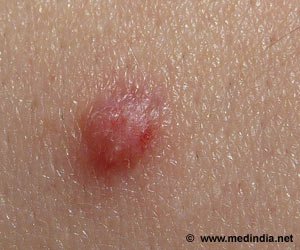HPV Infection Linked to Increased Cardiovascular Death Risk

Women infected with a high-risk strain of human papillomavirus (HPV) face a fourfold increased risk of cardiovascular disease-related death.
What is HPV?
HPV is a very common infection and high-risk strains are known to cause cervical cancer. Previous research has suggested that HPV may also contribute to the build-up of dangerous plaque in the arteries.
Investigating HPV as a Changeable Risk Factor
The research was led by Professors Seungho Ryu, Yoosoo Chang and Hae Suk Cheong from the Sungkyunkwan University School of Medicine, Seoul, Korea. Prof. Ryu said “Despite remarkable advances in controlling well-known risk factors for heart disease – such as smoking, high cholesterol, hypertension, and diabetes – heart disease continues to be a major cause of death. Interestingly, these conventional risk factors don’t explain all heart disease cases; about 20% occur in people who don’t have these issues. This highlights the need to investigate other changeable risk factors. Our research focuses on examining the impact of HPV, particularly in relation to cardiovascular mortality, as a potential risk factor for heart disease.”
The research included 163,250 young or middle-aged Korean women who had no cardiovascular disease at the start of the study. The women were given a variety of health screening tests, including cervical screening for 13 high-risk strains of HPV. The women returned for health checks every year or two for an average of eight and half years.
Did You Know?
There is a connection in women between high-risk HPV infection and fatalities from cardiovascular disease.
Researchers were able to combine data on the women’s HPV test results with national data on deaths from cardiovascular disease, including heart disease and stroke. As a group of relatively young, healthy women, their risk of dying of cardiovascular disease was generally low (9.1 in 100,000 overall).
Prof. Cheong said: “We know that inflammation plays a pivotal role in the development and progression of cardiovascular disease and viral infections are potential triggers of inflammation. HPV is known for its link to cervical cancer, but research is starting to show that this virus can also be found in the blood stream. It could be that the virus is creating inflammation in the blood vessels, contributing to blocked and damaged arteries and increasing the risk of cardiovascular disease.
“This study highlights the importance of comprehensive care for patients with high-risk HPV. Clinicians should monitor cardiovascular health in patients with high-risk HPV, particularly those with obesity or other risk factors. It’s important for people with high-risk HPV to be aware of the potential for both heart disease and cervical cancer risks. They should engage in regular health screenings and adopt a healthy lifestyle to mitigate their risk of cardiovascular disease.”
The researchers say more work is needed to find out whether high-risk HPV infection has similar effects on men and to see if the HPV vaccine can prevent deaths from heart disease. Prof. Ryu added: “If these findings are confirmed, they could have substantial implications for public health strategies. Increasing HPV vaccination rates may be an important strategy in reducing long-term cardiovascular risks.”
Advertisement
In an accompanying editorial Prof. James S. Lawson from the University of New South Wales, Sydney, Australia, and colleagues said: “The evidence that viruses in general and HPV in particular increase the risk of adverse outcomes from atherosclerotic cardiovascular disease has become compelling enough to add to the already strong case for vaccination against influenza virus, SARS-CoV-2, and HPV. The evidence that HPV is causal in the initiation or progression of atherosclerotic cardiovascular disease is highly suggestive but would become definitive if the results of randomized trials evaluating HPV vaccines for prevention of cervical cancer showed a reduction in atherosclerotic cardiovascular disease.
“These findings, when added to other evidence linking HPV and other viruses to higher cardiovascular disease mortality, make a strong case for accepting viruses as risk factors for adverse outcomes from atherosclerotic cardiovascular disease.”
Advertisement
Source link
#HPV #Infection #Linked #Increased #Cardiovascular #Death #Risk



